2024 Year End Checklist
Optimize Contributions to Registered Accounts:
Quarterly Tax Instalments:
- Confirm your payments are up to date to avoid interest and penalties.
By December 31, 2024
Tax-Free Savings Account (TFSA):
- Maximize the 2024 contribution limit of $7,000. Verify unused room with the Canada Revenue Agency (CRA), as unused amounts carry forward indefinitely.
- If planning to withdraw funds soon, consider doing so before year-end. Withdrawals made in 2024 will restore contribution room on January 1, 2025, allowing for early replenishment.
Registered Retirement Savings Plan (RRSP):
- Evaluate whether to contribute or withdraw based on your tax bracket. If income is unusually low, strategic withdrawals can reduce future tax exposure while qualifying for pension income splitting or the $2,000 pension tax credit (if aged 65+).
- If turning 71, convert your RRSP into a Registered Retirement Income Fund (RRIF) before year-end. Use a younger spouse's age to minimize mandatory withdrawals.
By March 3, 2035
- Maximize your 2024 deductions with contributions up to $31,560 or your limit.
- HBP/LLP Repayments: Meet minimum repayment amounts to avoid taxable income
First Home Savings Account (FHSA):
- Contribute up to $8,000 to deduct it on your 2024 tax return. Unused contribution room carries forward, but opening the account by December 31 ensures you can use up to $16,000 next year.
- If you've purchased a first home using an FHSA withdrawal, ensure all accounts are closed by December 31. Remaining funds can be rolled into an RRSP/RRIF without affecting contribution room
Registered Education Savings Plan (RESP) and Registered Disability Savings Plan (RDSP):
- Contribute to leverage grants or bonds. RESP contributions attract a 20% Canada Education Savings Grant (CESG) on up to $2,500 annually. RDSP contributions may qualify for the Canada Disability Savings Bond.
Capital Gains and Losses by December 30th, 2024
- Realize capital losses to offset taxable gains. Losses can carry back three years or forward indefinitely. Selling investments strategically by year-end helps manage taxable income.
- Trigger gains, apply losses, or claim a capital gains reserve if beneficial.
- Utilize the 50% inclusion rate for up to $250,000 in net capital gains realized between June 25 and December 31, 2024. Above $250K, the inclusion rate is 66.7%
Charitable Donations:
- Donate publicly traded securities directly to charities to eliminate the capital gains tax on appreciated assets.
- Plan donations with the alternative minimum tax (AMT) in mind. For 2024, AMT limits donation tax credits to 80% of the amount available under regular tax rules and includes 30% of capital gains from donated securities in taxable income calculations
By January 31, 2025
Eligible Expense Deductions:
Prepay deductible expenses like medical costs, childcare fees, or investment management fees. These reduce taxable income for 2024 when claimed.
- Income-Splitting Loan Interest: Ensure accrued interest on loans is paid to avoid attribution rule
For Business Owners:
- Review salary or dividend strategies to optimize taxes. Ensure sufficient salary is paid to maximize RRSP contribution room for 2025 (based on 2024 earned income).
- Pay salaries, bonuses, or other expenses before year-end to deduct them in 2024. Small business owners should confirm eligibility for the $500,000 small business deduction.
Estate Planning:
- Ensure wills, powers of attorney, and beneficiary designations are up-to-date. Address any changes in family circumstances, tax laws, or asset distributions.
- Plan RRSP or TFSA beneficiary designations to minimize taxes or delays for heirs.
Miscellaneous Considerations:
- U.S. Residents or Cross-Border Individuals: If applicable, coordinate tax planning to address IRS requirements, foreign income exclusions, or tax treaty benefits.
- Family Loans: Ensure interest payments on intra-family loans (e.g., income-splitting arrangements) are made by January 30, 2025, to avoid attribution rules.
- For Trustees: Decide by year-end whether trust income should be distributed or retained. Prepare for enhanced trust reporting rules, with exemptions for some bare trusts until 2025.
- For Residential Property Owners: If you're not a Canadian citizen or permanent resident, confirm compliance with the Underused Housing Tax (UHT). Returns are due April 30, 2025.
Actionable Steps:
- Schedule a meeting with your financial advisor and tax professional to identify personalized strategies.
- Review deadlines for processing contributions, withdrawals, or donations—some institutions may need several business days to complete transactions.
- Maintain thorough records to support tax claims.
By addressing these areas before December 31, you'll position yourself for a stronger financial start to 2025.
Laura
Source: www.canada.ca


















